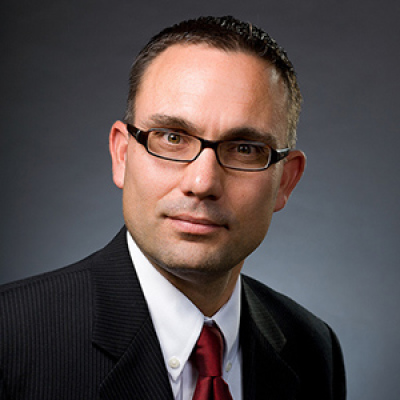Trump's Meeting With Evangelicals Confuses the Meaning of 'Evangelical'

To insiders, the meeting earlier this week between Donald Trump and what is being called an "Evangelical Advisory Board" represented an extremely narrow view of the term evangelical.
To outsiders, the meeting gave a false perception of clarity and understanding of the belief system and political perspectives of evangelicals, a group with a strong potential to affect the outcome of the presidential election in November.
As one who grew up in an evangelical home, attends an evangelical church, and now serves as a dean of a school of theology in an evangelical institution of higher education, I have a helpful suggestion. Perhaps using quotation marks around the word evangelical throughout this election cycle would help dispel the myriad misunderstandings of what constitutes true evangelicalism.
When can the term evangelical be used without quotation marks? I propose its use when connected to a specific action. For example, many of my friends are involved with the foster care system in Southern California, so I am comfortable with the phrase, evangelical foster care agency. Likewise, work with the homeless population clearly involves the Christian faith lived out, therefore an evangelical homeless shelter or evangelical community health clinic also resonates with me. Furthermore, the current global refugee situation calls for an evangelical refugee center.
My collaborative spirit and desire to connect with people inspires and informs my definition of the term and also helps me identify its misuse. In many ways, when I hear or see the term evangelical used in a way that narrows the potential connections I can have with others, particularly people in need, I become concerned.
In politics, the term evangelical often disregards my Savior's words, "Come to me, all you that are weary and are carrying heavy burdens, and I will give you rest. Take my yoke upon you, and learn from me; for I am gentle and humble in heart, and you will find rest for your souls. For my yoke is easy, and my burden is light." (Matthew 11:28-30)
This election cycle has made me think more and more about the need for a conference titled "Reclaiming Evangelical." The goal would NOT be to reclaim a certain political perspective, for I also have many concerns when I hear the term "Progressive Evangelical" or "Evangelical Left." The goal would be to recalibrate our compassion for others that works itself out in tangible ways regardless of one's specific political leanings.
I want people to hear the word evangelical and think about actions, not political perspectives.
At the end of the day, people can say, "Yes, we think evangelicals are crazy to think about a person two thousand years ago rising from the dead, but they sure do take care of orphans (or widows ... or homeless ... or immigrant ... or refugee ... or fill in the blank with any particular area of need encountered in this world)."
When I contemplate what true religion is, what true evangelical religion should be, I find that politicians who use the term evangelical largely miss what God said on the topic. "Religion that is pure and undefiled before God, the Father, is this: to care for orphans and widows in their distress, and to keep oneself unstained by the world." (James 1:28)
When people employ the term evangelical in political discourse, they often stand in direct conflict with this Scripture. This "stained" reality makes it necessary to enclose the term "evangelical" in quotation marks, as it does not accurately define who evangelicals are, or who we should be.



























